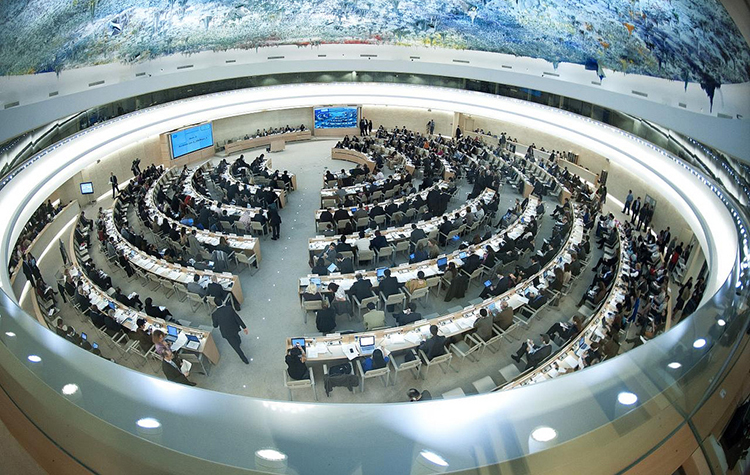48th regular session of the UN Human Rights Council
Item 2: General Debate on the High Commissioner’s oral updates on Sri Lanka and Afghanistan
Delivered by Ahmed Adam
On behalf of Asian Forum for Human Rights and Development (FORUM-ASIA)
14 September 2021
Madam President,
The situation in Sri Lanka has further deteriorated since the High Commissioner’s last report.
Surveillance, harassment and intimidation of human rights defenders, journalists and civil society organisations have escalated with increasing crackdowns on students, teachers, and healthcare workers. Continued use of the Prevention of Terrorism Act, including the prolonged detention of human rights lawyer Hejaaz Hizbullah and poet Ahnaf Jazeem under the law, has a serious chilling effect on fundamental freedoms.
Militarisation of civilian functions has been expanded to other areas including health and education. The state of emergency declared on 30 August in response to the COVId-19 pandemic, which gives broad powers to the President with limited checks and balances, adds to fears of accelerating militarisation.
Political appointments, with no parliamentary oversight, to key human rights and accountability institutions such as the Human Rights Commission of Sri Lanka and the Office of Missing Persons have compromised their independence and capacity to advance accountability. Lack of credible investigations into Easter Sunday attacks is yet another reminder of persistent impunity in the country.
The government’s commitments to human rights and accountability and to cooperate with the OHCHR and other UN agencies should be judged based on the realities on the ground.
Finally on Afghanistan, we call on the Council to establish an independent investigative mechanism to monitor and report on and advance accountability for human rights violations and abuses by all parties including the Taliban. This is the only credible action the Council can take to address and prevent further escalation of the human rights crisis in Afghanistan.
Thank you.
**
For a PDF version of this statement, click here



